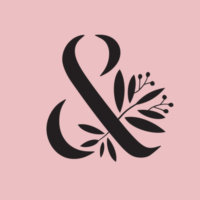Ocado Strikes Deal with Bloom & Wild; Edgewell Buys Harry’s
by Hugh Williams on 13th May 2019 in News


DTC’s Daily Digest brings you the latest news on the world’s fastest growing direct-to-consumer brands. In today’s edition: Ocado strikes deal with Bloom & Wild; Edgewell buys Harry’s; Uber struggles on first day as a public company.
Ocado strikes deal with Bloom & Wild
Flower delivery business Bloom & Wild has replaced Interflora as Ocado’s supplier. The move is a sign of the continued disruption of traditional business, by newer online players, with Bloom & Wild only entering the market six years ago.
The deal marks a change in strategy for the London-based florist, which has previously sold direct to consumers through their online strategy. It also represents a shift in emphasis from Bloom & Wild, who currently see 90% of their products purchased as gifts. The move to Ocado may well change this, putting Bloom & Wild in the limelight for everyday floral purchases, leading to a greater level of non-gift sales.
Either way, the deal is a massive coup for Bloom & Wild. Given Ocado’s huge customer base, the partnership will be a big boost to Bloom & Wild’s customer reach, extending it beyond their own website, and likely seeing a healthy boost to sales at the same time.
The deal will come as a blow to Interflora, obviously, but given the size of the business, it will be able to absorb the loss is sales. However, this shows the power of DTCs to disrupt traditional businesses through more dynamic relationships with retailers.
Edgewell buys Harry’s
Shaving firm Harry's, formed just six years ago, has been bought by Edgewell Personal Care, the owner of Wilkinson Sword, for USD$1.37bn (£1bn).

Harry's has helped to shake up the men's grooming market by selling goods direct to consumers via subscription. The move comes almost three years after Unilever's purchase of Harry's rival Dollar Shave Club in 2016 for USD$1bn (£770m).
Harry’s has grown rapidly, helped through collaborations with upmarket clothing retailer J. Crew and using brand ambassadors such as England football captain Harry Kane. The firm started selling its products in the UK in 2017.
New York-based Harry's has also invested in other businesses, including Hims, which sells hair-loss prevention products.
Harry's has captured about 2% of the USD$2.8bn (£2.2bn) men's shaving industry since its founding in 2013, according to market research firm Euromonitor. The global men's grooming industry is expected to hit USD$78.6bn (£60.4bn) by 2023, from USD$57.7bn (£43.4bn) in 2017.
Such has been the success of businesses like Harry’s, that traditional rival Gillette has launched its own subscription model. You can read more of our thoughts on this acquisition at DTC Daily.
Uber struggles on first day as a public company
Uber closed its first day of trading as a public company worth USD$41.57 (£31.96) per share, down from its IPO price of USD$45 (£35). The company continued to decline in after-hours trading.

It’s unusual to see such a large tech offering stumble on its first day. Even Lyft, which was the first ride-hailing startup to go public in the United States, had a first-day pop in its share price following its debut. Unfortunately for Uber, however, public markets seem determined to reign in the value private investors had put on the company, which bankers estimated to be worth USD$120bn (£92bn) last year.
What Uber’s slipping value will do to unicorns waiting to go public is unclear. It is possible that Uber’s first-day slump is a sign that public investors aren’t as keen on cash-burning startups as expected. If true, the changed sentiment could impact Slack and other unicorns looking to go public.
Yet Uber and Lyft are nearly unique in how much money they lose. Both firms also sport slimmer gross margins than many cash-burning software companies. However, what Uber had that made it unique was a hybrid of stiff losses and slow growth.







Follow Fast Growth Brands